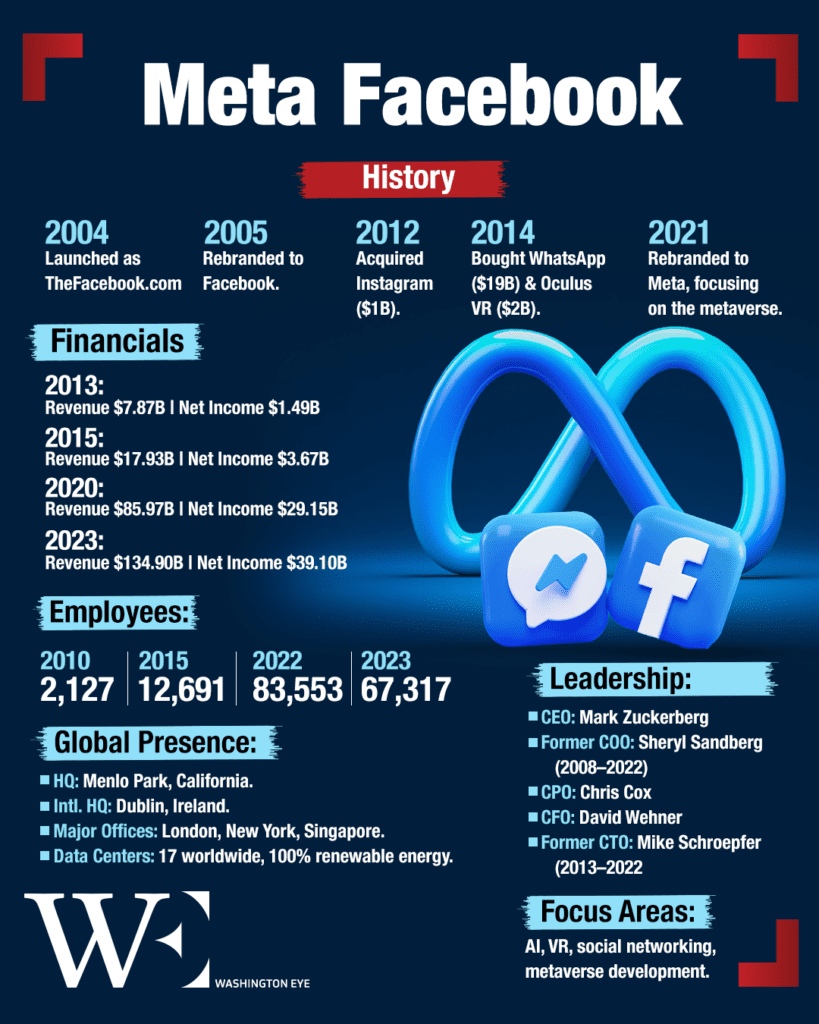Meta Platforms, formerly known as Facebook, is facing a legal dispute to prevent the promotion of a memoir by Sarah Wynn-Williams, the company’s ex-Director of Global Public Policy. The book, titled Careless People: A Cautionary Tale of Power, Greed, and Lost Idealism, alleges misconduct among Meta’s top executives, including CEO Mark Zuckerberg and former COO Sheryl Sandberg.
Allegations Detailed in Careless People
Wynn-Williams’ memoir presents a series of serious allegations against key figures within Meta. One of the most striking claims concerns Sheryl Sandberg, the former Chief Operating Officer. The book alleges that Sandberg engaged in inappropriate behavior, including excessive personal spending ($13,000) during a European trip and behaving unprofessionally toward subordinates. These revelations, if true, could tarnish Sandberg’s public image, particularly as she has long been a champion of women in leadership.
The memoir also includes serious allegations against Joel Kaplan, Meta’s Chief Global Affairs Officer. Wynn-Williams claims that Kaplan made inappropriate advances toward her and was unsupportive during her maternity leave. She describes instances where he allegedly downplayed her professional contributions and created a work environment that made it challenging for her to balance her career and personal life. Kaplan has been a contentious figure at Meta in the past, particularly due to his significant influence over the company’s political decisions.
Meta’s Strategy for China and Zuckerberg’s Role
The memoir also sheds light on Mark Zuckerberg’s efforts to expand Meta’s reach into China. According to Wynn-Williams, Zuckerberg was deeply involved in developing tools that would comply with Chinese government regulations, including censorship requirements. These efforts were part of a larger strategy to gain access to China’s massive internet user base, which remains largely closed off to Western tech companies due to strict government controls.
The book alleges that Zuckerberg’s commitment to this plan was so strong that he took personal steps to align himself with Chinese leadership. This included learning Mandarin, meeting with high-ranking officials, and even proposing a version of Facebook that would allow Beijing to control user data and suppress certain content.
The attempt to enter China ultimately failed, as the Chinese government remained hesitant to grant access to a foreign social media platform. However, the allegations raise questions about how far Zuckerberg was willing to go to gain market share, as well as the broader implications of Meta’s business strategies in regions with restrictive internet policies. The book’s revelations add to ongoing scrutiny over Meta’s past decisions related to privacy, surveillance, and government cooperation, reinforcing concerns about the company’s willingness to compromise its values in pursuit of profit.
Meta’s Legal Response
In reaction to the memoir’s publication, Meta secured an emergency ruling to temporarily halt Wynn-Williams from promoting the book or making disparaging remarks about the company. The arbitrator cited potential “immediate and irreparable loss” to Meta and a likelihood that the company would succeed in its non-disparagement claim. However, this ruling does not restrict Macmillan, the book’s publisher, from distributing the memoir, meaning that the allegations will still reach the public despite Meta’s legal efforts.
Meta’s Position on the Allegations
Meta has strongly refuted the claims made in the book, stating that Wynn-Williams was dismissed from the company in 2017 due to poor performance and toxic behavior. The company maintains that her allegations are unfounded and argues that internal investigations have cleared executives such as Joel Kaplan of any wrongdoing. Meta asserts that Wynn-Williams’ memoir is an attempt to rewrite history in a way that unfairly damages the company’s reputation.
A Final Note: Implications for Meta’s Public Image
The controversy surrounding Careless People underscores the ongoing challenges Meta faces regarding its internal culture and business ethics. If the allegations in the memoir gain traction, they could further erode public trust in the company’s leadership. With past scandals, including the Cambridge Analytica data privacy breach and allegations of political bias, Meta has already struggled to maintain a positive image. The outcome of this dispute may have lasting implications for Meta’s reputation, shaping public perception of its leadership and transparency. Regardless of the legal ruling, the publication of Careless People ensures that these allegations will remain part of the broader conversation surrounding Meta’s corporate culture and ethical decision-making.
















